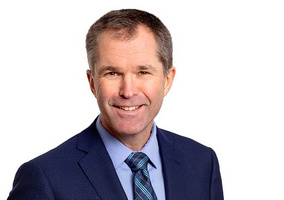Wellcome, the wealthiest charity in the UK, has recorded a £1bn drop in its investment assets and its lowest annual return since 2008.
The charity’s annual report covering the year to September 2023 shows that after increased charitable spend, the value of its investment portfolio fell by £1bn to £36.8bn.
It delivered an annual total return of 0.9% in the year to 30 September 2023, or -8.1% after inflation, compared with 1.7% the previous year, or -5.9% after inflation.
Since the inception of its investment portfolio in 1985, Wellcome has delivered an annualised return of 13.5% (10.6% after inflation).
Wellcome’s charitable expenditure, funded by returns generated by its investment portfolio, rose to £1.70bn.
‘Most of our assets didn’t benefit from market recovery’
Wellcome said in its report that “although our public equity portfolio had a decent year, most of our assets are not invested in public markets so did not benefit from the market recovery”.
“The total portfolio returned 0.9% in sterling (2022: 1.7%), as we ended the year with a portfolio value of £36.8bn (2022: £37.8bn).
“After taking account of £1.3bn in charitable cash expenditure over the year, this is equivalent to a gain of £0.3bn gross of liabilities. Sterling returns were significantly impeded by currency strength: in USD terms the portfolio was up +10.3% (2022: -15.8%),” it wrote.
Long-term returns have been “extremely healthy and led to exceptional growth in the endowment over the past four decades”, generating a real return after inflation of 188% (9.5% a year in real terms or 12.3% a year in nominal terms) in the last 10 years.
“However, we are clearly now in a quite different world, with structurally higher interest rates and a highly uncertain economic backdrop,” the charity said.
“Markets will take time to adjust to the new reality and we therefore expect to see higher volatility and persistently lower returns from most assets for the near future. We have probably yet to see the full impact of higher interest rates in terms of debt defaults and broader economic impact.”
Increase in charitable expenditure
The 2022-23 period was the first financial year of Wellcome’s decade-long commitment to spending £16bn on supporting discovery research and science to address the global challenges of mental health, infectious disease, and climate and health.
As a result, charitable spend, which includes research grants, increased from £1.36bn to £1.70bn.
Total income rose from £502.3m to £541.8m, with income from grants, programme-related investment activity and Wellcome Collection reaching £67m, compared with £136m the previous year.
The report reads: “Inflation is coming down but remains at uncomfortable levels. Meanwhile, the higher interest rates needed to combat inflation have negatively affected consumers and many businesses, which has caused economic growth to stall. The recovery in equity markets during our financial year has been welcome but may be difficult to sustain if interest rates remain at current levels for long.
“Despite these pressures, Wellcome’s plan to spend £16bn over a decade remains firm given the financial headroom created by the long-term growth of the portfolio. Although higher inflation will mean that our money cannot fund as much work as it otherwise would have done, it is a solid platform from which to pursue scientific impact and improvements in health for everyone.”
Becoming an anti-racist and anti-ableist organisation
Wellcome is developing an environmental, social and governance (ESG) strategy for the Wellcome Trust Group, which comprises the Wellcome Trust and its charitable and investments subsidiaries.
As part of this, it has taken steps such as appointing its first chief equity, diversity and inclusion (EDI) officer in July 2023.
The report says: “In autumn 2022, we developed a 10-point action plan to accelerate progress in our anti-racism work throughout 2022-23. By 30 September 2023, six actions had been completed on schedule. Four were delayed – notably the introduction of positive action in our funding processes, and dedicated funding streams – but are on track to be completed early in 2024.
“In 2024, we will also begin a three-year action plan to progress towards becoming anti-ableist. This work will cover employee policy, senior leader learning, all-staff learning, and research funding.”
Wellcome, which employs around 1,050 people in the UK and Germany, said its third goal in its EDI strategy is that “by 2031, the people we employ will be representative of the places where we work”.
“In February 2023, we launched a range of new and updated policies, procedures and guidance to help achieve this goal. They included new policies on equal opportunities and workplace adjustments, and updates to our resolution framework and ways of working guidance.”
‘Disappointing’ rise in gender pay gap
Wellcome reported that its median gender pay gap increased to 16.2% in 2023, from 15.4% the previous year and 13.2% in 2021.
Meanwhile, its median ethnicity pay gap decreased from 5.6% in 2022 to 3.3% last year.
On its gender pay gap, Wellcome said that it “is mostly due to different distributions of men and women at different levels of seniority: while senior roles are broadly evenly split, we employ relatively fewer men in junior roles”.
“The rise from last year is disappointing, but mostly the result of a small number of mid-level promotions.
“Our ethnicity pay gap is smaller but interpretation has to be tentative because we have not received ethnicity data from about 15 percent of our employees. We continue to take a sustainable, long-term approach, including a range of actions to make Wellcome a more diverse and inclusive employer.”
Related articles












